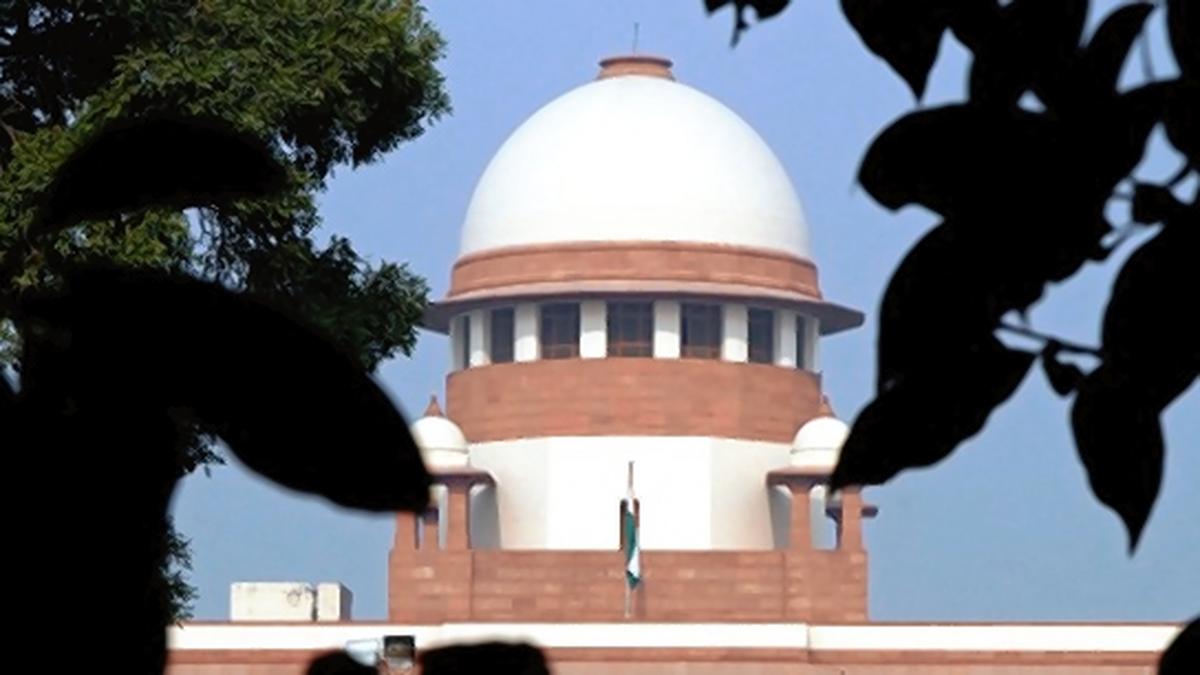
Lawyers can't go on strike or abstain from judicial works: Supreme Court
The Hindu
Supreme Court says lawyers cannot go on strike or abstain from work and directed all High Courts to constitute grievance redressal committee at the State level
The Supreme Court on April 20 said lawyers cannot go on strike or abstain from work and directed all High Courts to constitute grievance redressal committee at the State level headed by the Chief Justice, where advocates could make representations for redressal of “genuine problems”.
A Bench headed by Justices M.R. Shah and Ahsanuddin Amanullah said that a separate grievance redressal committees be constituted at District Court level to provide a forum, where lawyers could seek redressal of their genuine grievances related to procedural changes in filing or listing of cases or misbehaviour of member of lower judiciary.
“We once again reiterate that no member of the bar can go on strike... Time and again this court has emphasised that advocates going on strike or abstaining from their work hampers judicial work”, the Bench said.
The court disposed of an application filed by District Bar Association of Dehradun seeking an appropriate forum for redressal of their complaints and directed the registry to send the copy of this order to the Registrar-General of all High Courts for taking steps in accordance with the order.
Justice Shah, who pronounced the order, said if members of bar have some genuine grievance or face difficulty because of the procedural changes in filing and listing of matters or any genuine grievance pertaining to the misbehaviour of member of the lower judiciary, they can very well make a representation for redressal of genuine grievance by some forum, so that such strikes could be avoided.
It said the forum should be a place where members of the bar can ventilate their grievances.
“Therefore, we request all High Courts to constitute a grievance redressal committee in their respective High Courts which may be headed by the chief justice and such a grievance redressal committee should consist of two other senior judges — one each from the judicial services and one from the bar — to be nominated by the Chief Justice as well as the Advocate-General of the State, Chairman of the bar council of the State and the president of the High Court bar association,” it said.

“Writing, in general, is a very solitary process,” says Yauvanika Chopra, Associate Director at The New India Foundation (NIF), which, earlier this year, announced the 12th edition of its NIF Book Fellowships for research and scholarship about Indian history after Independence. While authors, in general, are built for it, it can still get very lonely, says Chopra, pointing out that the fellowship’s community support is as valuable as the monetary benefits it offers. “There is a solid community of NIF fellows, trustees, language experts, jury members, all of whom are incredibly competent,” she says. “They really help make authors feel supported from manuscript to publication, so you never feel like you’re struggling through isolation.”

Several principals of government and private schools in Delhi on Tuesday said the Directorate of Education (DoE) circular from a day earlier, directing schools to conduct classes in ‘hybrid’ mode, had caused confusion regarding day-to-day operations as they did not know how many students would return to school from Wednesday and how would teachers instruct in two modes — online and in person — at once. The DoE circular on Monday had also stated that the option to “exercise online mode of education, wherever available, shall vest with the students and their guardians”. Several schoolteachers also expressed confusion regarding the DoE order. A government schoolteacher said he was unsure of how to cope with the resumption of physical classes, given that the order directing government offices to ensure that 50% of the employees work from home is still in place. On Monday, the Commission for Air Quality Management in the National Capital Region and Adjoining Areas (CAQM) had, on the orders of the Supreme Court, directed schools in Delhi-NCR to shift classes to the hybrid mode, following which the DoE had issued the circular. The court had urged the Centre’s pollution watchdog to consider restarting physical classes due to many students missing out on the mid-day meals and lacking the necessary means to attend classes online. The CAQM had, on November 20, asked schools in Delhi-NCR to shift to the online mode of teaching.









